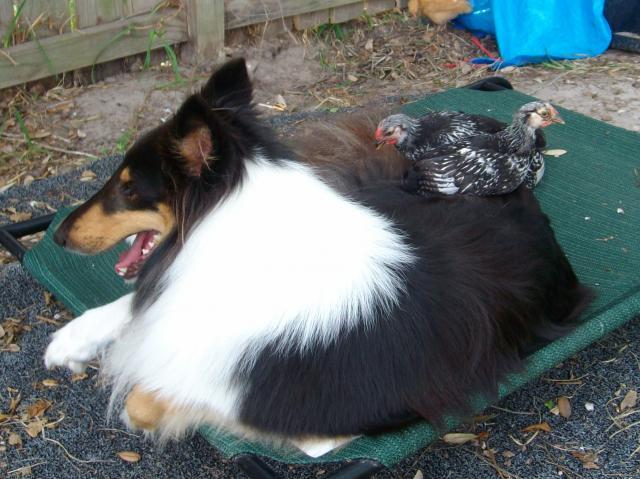- Jul 21, 2010
- 9
- 0
- 7
Greetings all,
I am new to this board, and as such, this is my first post.
We are seriously thinking about getting 2 to 3 chicks for our backyard/6 year-old twins/family-life learning experience.
We are homeschoolers and look to find learning in all opportunities, and are currently being called to become 'chicken care-takers'...

My main and first pressing question is the following:
We have a darling, loving, gentle, yet almost 90 pound energetic chocolate lab...
What is the best way to go about having a dog that is used to being the only animal in the backyard get used to and accept this likely new addition to our family?
Our current thoughts are to of course keep the chickens in our home-made coup during the day, and then put the dog in our front yard at certain times throughout the day so the chickens can have free range of the back yard and help with pest/weed control in our organic garden....
Forgive any nievity expressed in this post... Clearly, I am totally new to this....
Thank you,
Katie
I am new to this board, and as such, this is my first post.
We are seriously thinking about getting 2 to 3 chicks for our backyard/6 year-old twins/family-life learning experience.
We are homeschoolers and look to find learning in all opportunities, and are currently being called to become 'chicken care-takers'...

My main and first pressing question is the following:
We have a darling, loving, gentle, yet almost 90 pound energetic chocolate lab...
What is the best way to go about having a dog that is used to being the only animal in the backyard get used to and accept this likely new addition to our family?
Our current thoughts are to of course keep the chickens in our home-made coup during the day, and then put the dog in our front yard at certain times throughout the day so the chickens can have free range of the back yard and help with pest/weed control in our organic garden....
Forgive any nievity expressed in this post... Clearly, I am totally new to this....
Thank you,
Katie




